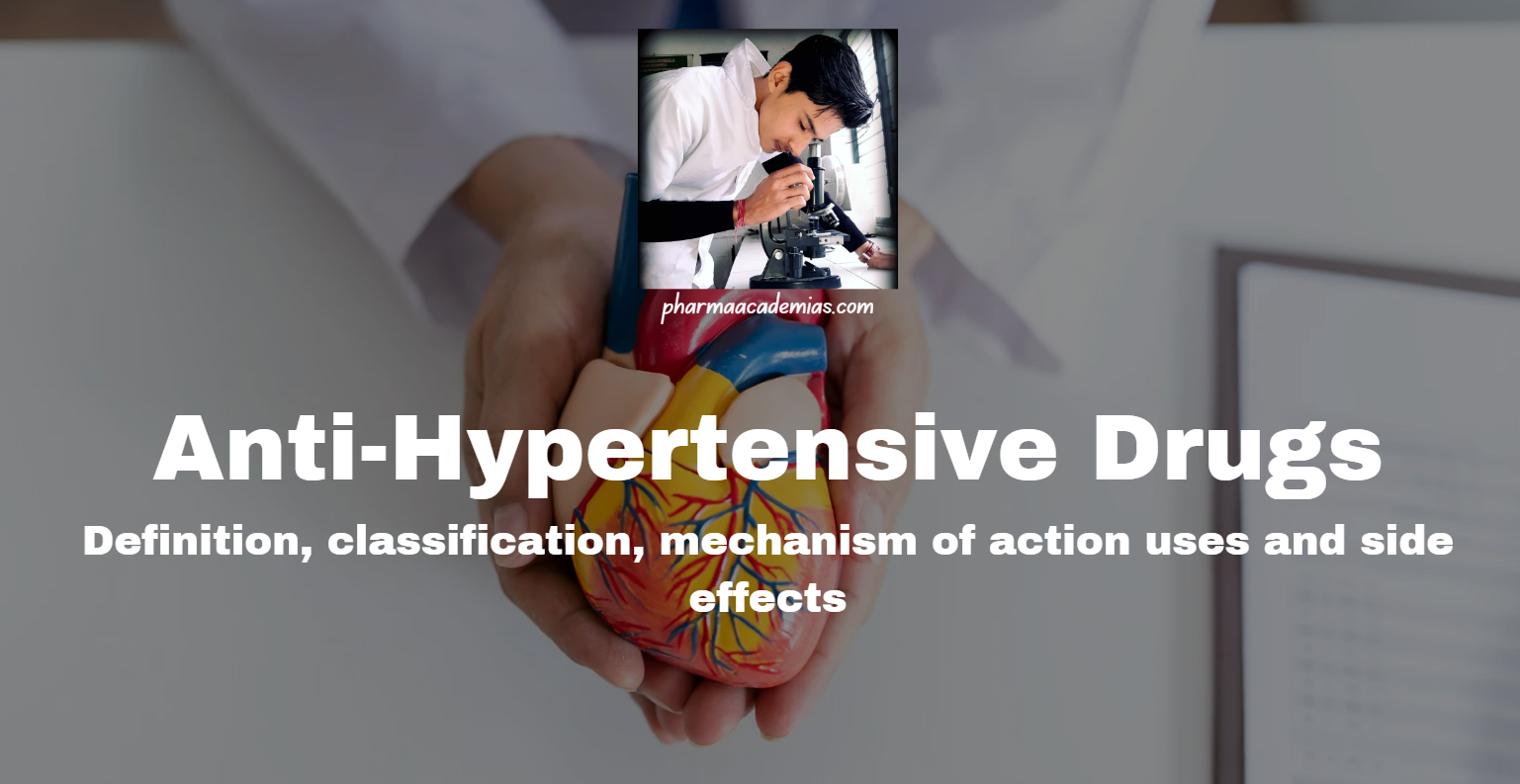Anti-Hypertensive Drugs: Definition, classification, mechanism of action uses and side effects
Hypertension, commonly known as high blood pressure, is a major risk factor for cardiovascular diseases, including heart attack, stroke, and heart failure. Anti-hypertensive drugs are used to manage and treat hypertension by lowering blood pressure to prevent these complications. Introduction Anti-hypertensive drugs are medications designed to reduce elevated blood pressure. They work through various mechanisms … Read more




